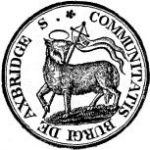Warning: Men should avoid eating fried potatoes.
First published in Local Reach August 2020
In 1836 in Compton Bishop, one Elizabeth Dunn was concerned about her elderly neighbour, John Edney who was extremely unwell, supposedly suffering from an old stomach complaint. Elizabeth and John’s wife, Sophia, gave him orange juice, milk and mutton broth but he just brought everything up. He told Mrs Dunn that the gruel and ginger Sophia made for him burned his mouth and that he had a raging thirst. None of the powders or mixtures Edward Wade, the local doctor, prescribed seemed to improve matters either. In fact, they made things worse.
John complained to another neighbour, Elizabeth Collins, that the doctor’s medicine had ‘burnt his inside out’ and that his throat felt raw and ‘on fire’. According to Mrs Collins he was “in dreadful agonies, twisting and turning himself about, and his features very much discoloured’. John died a few hours later. Edward Wade was suspicious and despite Sophia’s objections, ordered an autopsy. John had told the doctor that he had a burning sensation in his stomach after eating fried potatoes. Wade, suspecting that John may been poisoned with arsenic, took the contents of John’s stomach to Professor William Herapath, the Professor of Chemistry at Bristol Medical School. Wade also collected scrapings from the skillet in which the potatoes had been fried.
The Edneys were clearly an ill-matched couple. Sophia Vane was 16 and in domestic service in Bath when she had met John Edney six years previously; John, a 61-year-old widower, delivered eggs, butter and poultry to the household. Later, the couple settled in the village of Compton Bishop, where John continued with his eggs and butter business and also gathered watercress. They had three children but there were rumours that Sophia had wanted to be rid of her elderly spouse in order to marry a younger man.1
On 12 April 1836, a month after John’s death, Sophia stood trial at Taunton Assizes in front of judge Joseph Littledale. A druggist from Axbridge said that he had sold Sophia arsenic for killing rats. Mr Wade outlined his suspicions at the time of John’s illness and death and Professor Herapath described his tests on the contents of John’s duodenum, which confirmed the presence of arsenic. He also stated that he had found a small amount of arsenic in the scrapings from the skillet.
Sophia was found guilty and sentenced her to death. In prison she was said to have conducted herself ‘with great propriety’ and to have confessed to the crime.She was the last woman to be executed in England before Victoria ascended the throne.
Elizabeth Friend, Axbridge Archaeological and Local History Society
